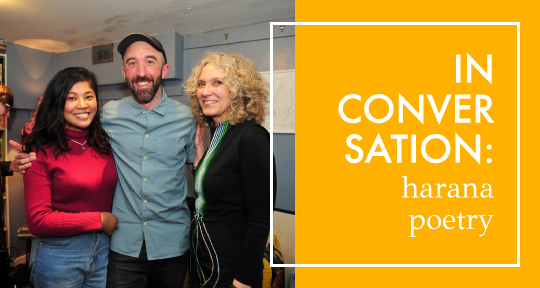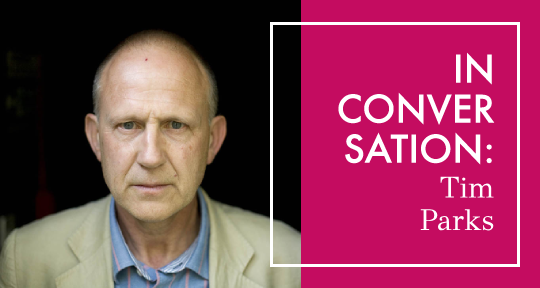In the UK, Kostya Tsolákis, Romalyn Ante, and Alice Hiller recently launched harana poetry, a new online magazine for poets writing in English as a second or parallel language. The magazine, whose first issue appeared in February 2019, features poems, interviews, and reviews. In their welcome section, the three editors call for a celebration of solidarity and interaction: “The mission of harana poetry is to resist singleness of tongue and thought, initiate creative conversations and enlarge possibilities.” Here at Asymptote, we knew just how much this would resonate with our readers. Assistant Managing Editor (Issue Production) Lou Sarabadzic conducted the following interview with the editors to learn more about harana poetry and contemporary multilingual poets.
Lou Sarabadzic (LS): harana poetry has three creators. How did you meet? What prompted you to launch a journal together?
Kostya Tsolákis (KT): The idea of a magazine for poets writing in English as a second language was brewing in my mind for several years. When I first started submitting poems to magazines, I felt a little insecure because I was writing in a language that isn’t my mother tongue. I’d mention my idea to friends, and they were very supportive, but I felt I needed someone to help me bring it to life. I thought it was important to have another poet’s perspective when it came to choosing the poems and, really, I didn’t want a project of this kind to be a one-man band.
Roma and I were both shortlisted for the Primers 3 mentoring scheme in 2017. That’s how we first came into each other’s radar. We then met at an event in London, in March last year, and I immediately felt we had a connection. I can be a bit shy and awkward when I meet people for the first time, but I felt comfortable in her company right away. I felt we could work well together. Without a second thought I asked her that evening if she was interested in creating the magazine with me. READ MORE…


